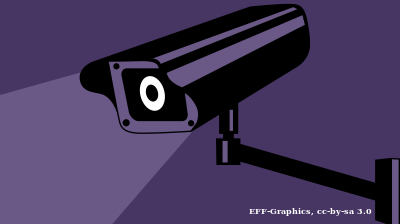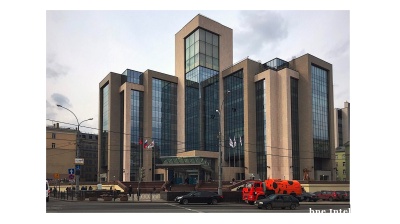Russia’s internet watchdog Roskomnadzor has been blamed for another round of internet outages in Russia, as the state sets up a Telegram messaging app clone as the Kremlin continues to take increasing control of RuNet.
Russia’s internet has been plagued by outages and attacks on foreign apps and sites working in Russia, as part of the Kremlin’s campaign for “internet sovereignty”. Having ignored it for years, Russian President Vladimir Putin has belatedly started to impose controls on the Cyrillic based internet, or RuNet, and desire to replace the Western giants with domestically created and controlled analogue sites and services.
The process started with the Yarovaya law in 2016 that forces foreign companies to keep their data on servers in Russia and hence under Russian legislative control. Since then Roskomnadzor has been developing software that can close down “unfriendly” sites but in the course of testing it has caused frequent outages. The ultimate goal is to create a completely isolated "splinternet ("cheburnet” in Russia) that can be cut off from the rest of the world, say analysts.
Most famously, the Federal Security Service (FSB) tried to close down the messaging service Telegram but failed and mistakenly blocked thousands of other sites instead, including that of Roskomnadzor itself. A year later the authorities gave up and introduced a bill to un-ban Telegram.
Since then Roskomnadzor has gotten more proficient in throttling message services like Telegram and WhatsApp, both leading services in Russia. In February, it also slowed YouTube to a crawl as the Kremlin promotes domestically created alternatives like RuTube.
New outages
The disruptions to foreign messaging apps began again last week as complaints that Telegram and WhatsApp were not working properly poured in to sites like Downdetector that affected 34 of Russia’s 83 regions, including the capitals of Moscow and St Petersburg.
“Suspicions that Roskomnadzor is behind the disruptions have become a virtual certainty,” The Bell reports. “The agency itself announced that it is taking "measures to partially restrict the operation of foreign messaging apps”."
Roskomnadzor claims the foreign messaging apps Telegram and WhatsApp have become the main services used to defraud and extort money, and to lure Russian citizens into “sabotage and terrorist activities.”
"Repeated demands for countermeasures by messaging app owners have been ignored," Roskomnadzor said in a statement. Oleg Terlyakov, deputy head of Roskomnadzor, just said last week that blocking voice calls on WhatsApp and Telegram has reduced fraud on foreign messengers by 40%, The Bell reports.
Users in some regions reported that they suddenly had short-term access to voice calls. “Therefore, this is almost certainly an experiment with filtering rules on the TSPU "black boxes" through which Roskomnadzor monitors operator traffic,” The Bell reports. “The likely goal could have been updating the rules or testing a complete blocking of resources.”
Russian-made copycats
The Kremlin is actively promoting new services. The recently launched Max messaging service is now preinstalled on all smartphones installed in Russia since September 1. Max's latest achievement, reported by VK, is 45mn registered users and 18mn daily reach. Telegram still has almost 100mn users in Russia, and WhatsApp slightly fewer.
The latest Russian-made messaging app, Telega has quickly risen in domestic app store rankings, offering users access to Telegram-like functionality amid growing state restrictions on foreign platforms, Meduza reports. But cybersecurity analysts warn that the service may be deeply embedded in the Kremlin-linked internet infrastructure.
Launched in early 2025, Telega is a variant of Telegram that was built using Telegram’s publicly available source code. The app looks and works almost identically to Telegram and can even import contacts and messages from the original app to the Russian app, allowing users to sync with their existing Telegram accounts.
Its key selling point is a built-in proxy, which enables stable access within Russia without a VPN, thereby bypassing throttling measures implemented by the state. But that comes at the cost of the authorities ability to see and read everything that passes through the app, warn experts.
The app’s popularity surged since its October launch, when Roskomnadzor imposed fresh “partial restrictions” on foreign messaging services. In regions such as Chechnya and Dagestan, where access to Telegram is frequently blocked altogether, Telega has topped local download charts, Meduza reported.
Independent technical analyses, shared with Agentstvo and Verstka, revealed evidence of deep integration with VK — the Kremlin-aligned internet conglomerate that owns Odnoklassniki and the state-promoted messenger Max, Meduza reports. According to experts, the app contains VK’s analytics tools, voice-call infrastructure, and internal domains, as well as a concealed “blacklist” feature that can suppress specific channels or users.
Telega’s developers deny any formal connection to VK, despite having previously sold a company to the firm. They claim the project is self-funded and relies only on publicly accessible VK technologies. They also maintain that all user messages remain on Telegram’s servers, with Telega merely acting as an enhanced interface offering additional features, such as a consolidated channel wall — a function long requested by Telegram users.
Tech

Albania’s AI minister ‘pregnant’ with 83 children, PM says
AI “minister” Diella will give birth to dozens of digital parliamentary assistants for ruling party MPs.

Is Kazakhstan building a digital utopia, or a China-style surveillance state?
Many Kazakhs will tell you that officials should limit their ambitions to fixing the internet speed. Others worry that the time for joking is over.

Kia inaugurates $310mn "highly automated" automotive plant in Kazakhstan
Featuring 68 industrial robots, the plant is designed to produce up to 70,000 vehicles annually.

Romanian startup .lumen wins €11mn EU grant to develop autonomous delivery robots
Funds to back project aimed at developing a new generation of humanoid and quadruped robots capable of navigating pavements and crowded urban areas autonomously.



